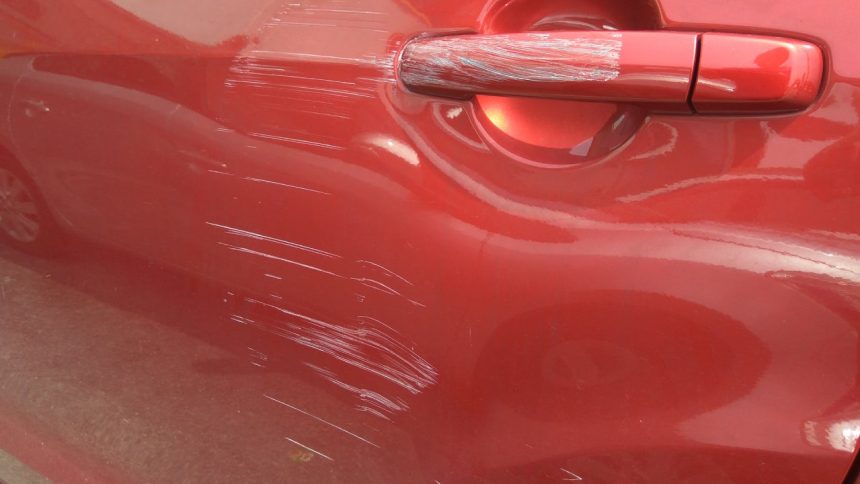Azri Suratmin/Getty Images
Key takeaways
- Hit-and-run accidents make up 11 percent of all car accidents reported to police, according to AAA.
- Drivers convicted of a hit-and-run in Connecticut could face fines and even prison time.
- Hit-and-run drivers in the Constitution State may see their car insurance premiums rise substantially or they may face the non-renewal of their policies.
If you’re involved in a car accident, your instinct may be to escape the scene, especially if you were at fault and can’t afford the financial or legal consequences. However, a hit-and-run accident can prove even more costly than an at-fault accident, so it’s important to understand the potential ramifications. If you are involved in an incident where you fail to exchange contact information with the other driver or with emergency responders, this is considered a hit-and-run, which is illegal in the state of Connecticut.
Hit-and-runs in Connecticut
A hit-and-run is when a driver fails to stop and provide insurance information after an accident. Nationally, approximately 11 percent of all car accidents reported to police are hit-and-run. Between 2019 and 2023, Connecticut recorded 128 hit-and-runs that resulted in at least one fatality. Even when a fatality does not occur, Connecticut has strict penalties for those convicted of a hit-and-run.
Connecticut hit-and-run laws
Connecticut law prohibits driving away from the scene of an accident without exchanging contact information and insurance details. Depending on the circumstances of the accident, the driver may be charged with either a misdemeanor or a felony under Connecticut’s hit-and-run laws.
Drivers convicted of a hit-and-run where only property damage occurs may face a fine of up to $600 (or $1,000 for a subsequent offense) and up to one year in prison. If you’re convicted of a hit-and-run incident where death or serious injury occurs, you could face a fine of up to $20,000 and 20 years in prison.
How do hit-and-runs impact car insurance rates in Connecticut?
If you have a hit-and-run conviction on your record, you will likely see your insurance premiums increase and may even be classified as a high-risk driver. In some cases, insurance companies may choose not to renew policies for drivers convicted of a hit-and-run. Additionally, if you are the at-fault driver in a hit-and-run in CT, a judge may order you to file an SR-22 with the state. This form will prove to the state that you are carrying an insurance policy that meets or exceeds the state minimum limits.
Unfortunately, even if you are not the at-fault driver, you may see your insurance premiums increase if you choose to file a claim with your insurance company for the damages.
Will insurance cover a hit-and-run?
While actual hit-and-run insurance does not exist, there are types of coverage that may help you in the event of a hit-and-run.
- Collision: Collision coverage is part of a full coverage policy designed to pay for damages to your car, regardless of fault.
- Medical payments: This optional coverage may pay for the medical costs of you and your passengers, up to your policy limit, regardless of fault.
- Uninsured and underinsured motorist: These coverage types are required in Connecticut and may help pay for your medical bills if the other driver was found and does not have insurance or does not have enough insurance for your damages.
If you are unsure about the coverage you have or about what types of coverage options your insurance provider offers, it may be helpful to speak with an agent.
How to file an insurance claim after a hit-and-run in Connecticut
Knowing how to respond to a hit-and-run accident can be challenging, especially if you are the victim. Being prepared and understanding what steps to take can help you to document the incident properly and take steps to resolve any damage.
- If anyone is hurt, call 911: The first thing you should do after a hit-and-run is make sure everyone is safe and that no injuries have been sustained. If needed, call 911 for medical attention.
- Move your car out of harm’s way: If you are able to do so safely, move your vehicle to the shoulder or a nearby parking lot so you are out of the flow of traffic. This may help prevent subsequent accidents.
- File a police report: If you’ve already called for medical assistance, the police may also be on their way. However, even if there are no injuries, calling the police and filing a report may help law enforcement to track down the person at fault.
- Take pictures: Once you and your car are safely removed from traffic, take pictures of any damage your car sustained from the accident. Photos can be helpful during the insurance claims process.
- File a claim with your auto insurance provider: If you want to file a claim on your own insurance for the damage or medical expenses caused by the hit-and-run, you’ll need to contact your car insurance company. Your insurer may ask for any evidence you have, as well as the police report from the incident.
Frequently asked questions
Why we ask for feedback
Your feedback helps us improve our content and services. It takes less than a minute to
complete.
Your responses are anonymous and will only be used for improving our website.
Help us improve our content
Read the full article here
















